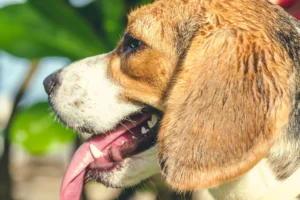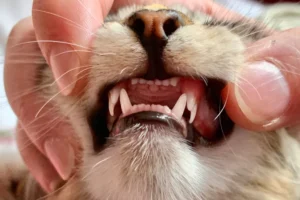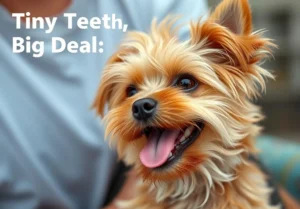Have you noticed that your usually ravenous cat is suddenly disinterested in their food? It can be concerning when your feline friend is attached to you but not eating as normal. Let’s explore the reasons behind this behavior and what you can do to help.
If your cat is attached to you but not eating, it could be due to stress, illness, dental issues, or a change in their environment. It’s important to address this issue promptly, as prolonged loss of appetite can lead to health complications for your furry companion.
Signs of stress in cats
Is your feline friend acting out of character and skipping meals? Cats can be sensitive creatures, and stress is a common culprit behind their appetite changes. Keep an eye out for signs of stress in your cat, such as excessive grooming, hiding, aggression, or urinating outside the litter box. These behaviors can indicate that your cat may be feeling anxious or overwhelmed, leading to a loss of appetite.
Additionally, changes in their environment, such as moving to a new home, introducing a new pet, or loud noises, can also cause stress in cats. Providing a quiet and safe space for your cat to relax, along with interactive toys and regular playtime, can help alleviate their anxiety and encourage them to eat. If you suspect that stress is the reason behind your cat’s reluctance to eat, consider consulting with your veterinarian for further guidance and support.
Health issues that can affect a cat’s appetite
While stress is a common reason for a cat’s lack of appetite, it’s essential to consider health issues that could also be at play. Dental problems, gastrointestinal issues, kidney disease, diabetes, or infections are just a few examples of health conditions that can impact a cat’s eating habits. If your cat is not eating and displaying other symptoms such as vomiting, diarrhea, weight loss, or lethargy, it’s crucial to seek veterinary attention promptly.
Regular check-ups and preventative care can help detect and treat underlying health issues early on, improving your cat’s overall well-being. Proper nutrition, hydration, and medication, if necessary, can help manage and resolve many health problems affecting your cat’s appetite. Remember, your veterinarian is your best ally in ensuring your cat’s health is in top shape.
Importance of dental health for cats
Maintaining good dental health is crucial for cats, as dental issues can lead to pain and discomfort, making them reluctant to eat. Regular dental check-ups and cleanings can help prevent problems such as gum disease or tooth decay. Additionally, providing your cat with dental treats or toys can help keep their teeth clean and healthy. Remember, a healthy mouth equals a happy eater!
Here’s a unique insight: Did you know that dental problems in cats can also affect their overall health? Untreated dental issues can lead to more severe health problems, such as heart disease or kidney issues. So, taking care of your cat’s teeth not only ensures they can enjoy their meals but also contributes to their overall well-being.
Ways to alleviate stress in cats
When cats are stressed, it can impact their appetite and lead to decreased food intake. To help reduce stress in your feline friend, provide a calm and quiet environment for them to relax in. Incorporating interactive playtime and ensuring they have a designated space to retreat to can also help alleviate stress. Additionally, using pheromone diffusers or calming supplements may help soothe anxious cats.
- Ensure your cat has a comfortable and quiet place to rest to promote relaxation.
- Provide vertical spaces for your cat to climb and explore, offering a sense of security.
- Engage in interactive play sessions to help your cat release pent-up energy and reduce stress levels.
Remember, a stress-free cat is more likely to have a healthy appetite and enjoy their meals. By creating a peaceful environment and addressing their emotional well-being, you can help your cat feel more at ease and willing to eat.
Dietary changes to entice your cat to eat
If your cat is not eating, it’s essential to try different dietary options to stimulate their appetite. First and foremost, offer a variety of textures such as wet food, dry kibble, or even treats to see what your cat prefers. Introducing new flavors can also pique their interest, so consider rotating between different protein sources like chicken, tuna, or salmon.
Adding warm water or low-sodium chicken broth to your cat’s food can enhance its aroma and texture, making it more appealing. Experiment with meal times as well, as some cats may prefer smaller, more frequent meals throughout the day. Spoil your cat a little by sprinkling some tasty toppings like cooked egg or a sprinkle of parmesan cheese on their food to entice them.
It’s crucial to monitor your cat’s weight during this process to ensure they are getting adequate nutrition. If your cat’s lack of appetite persists, it’s best to consult with your veterinarian to rule out any underlying health issues that may be causing the reduced appetite. Remember, patience is key when trying new dietary changes to entice your cat to start eating again.
The role of hydration in a cat’s appetite
Hydration plays a crucial role in a cat’s appetite and overall health. Cats are notoriously picky drinkers, so it’s essential to provide them with fresh water in clean bowls at all times. Consider investing in a cat fountain to encourage your cat to drink more water, as some cats prefer running water over still water.
Wet food is an excellent way to increase your cat’s water intake, as it has a higher moisture content than dry kibble. If your cat is not eating, offering hydrating treats like pieces of cooked chicken or tuna can help maintain their hydration levels. Cats are less likely to drink than other animals, so ensuring they are adequately hydrated through their food is crucial for their health and appetite.
Additionally, broths can be a great way to add extra hydration to your cat’s diet. You can try warming up some low-sodium chicken or fish broth and adding it to their food to entice them to eat and drink at the same time. Prioritizing hydration can help improve your cat’s appetite and overall wellbeing.
When to seek veterinary help
If your cat, who is usually attached to you, is not eating, it’s crucial to monitor the situation closely. If your feline companion continues to refuse food for more than 24 hours, it’s time to seek professional help from a veterinarian. Persistent lack of appetite can be a sign of an underlying health issue that requires prompt attention. Remember, your cat’s well-being is a top priority, so don’t hesitate to reach out to a vet if you have concerns about their eating habits.
Understanding the importance of seeking help promptly
When your cat is deeply attached to you but refusing to eat, it can be a distressing situation. Remember, cats are masters at hiding signs of illness, so a change in their eating habits could indicate a serious problem. By seeking veterinary help promptly, you can ensure that any underlying issues are addressed early, increasing the chances of successful treatment. Your furry friend relies on you to advocate for their health, so don’t delay in reaching out to a professional for assistance.
Additional tip: Monitor your cat’s behavior closely, as changes in appetite can be accompanied by other concerning symptoms. Keep an eye out for signs of lethargy, vomiting, diarrhea, or weight loss, as these could indicate a more significant health issue that requires immediate attention.
Alex, a passionate animal lover, has experience in training and understanding animal behavior. As a proud pet parent to two dogs and three cats, he founded AnimalReport.net to share insights from animal experts and expand his knowledge of the animal kingdom.




